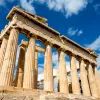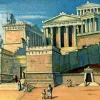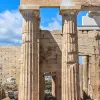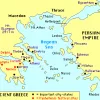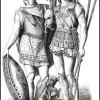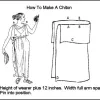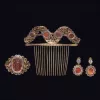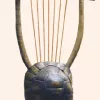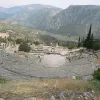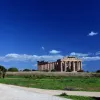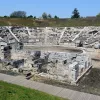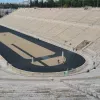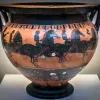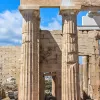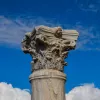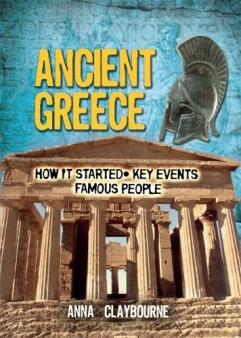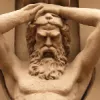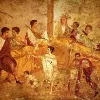Important update from TheSchoolRun
For the past 13 years, TheSchoolRun has been run by a small team of mums working from home, dedicated to providing quality educational resources to primary school parents. Unfortunately, rising supplier costs and falling revenue have made it impossible for us to continue operating, and we’ve had to make the difficult decision to close. The good news: We’ve arranged for another educational provider to take over many of our resources. These will be hosted on a new portal, where the content will be updated and expanded to support your child’s learning.
What this means for subscribers:
- Your subscription is still active, and for now, you can keep using the website as normal — just log in with your usual details to access all our articles and resources*.
- In a few months, all resources will move to the new portal. You’ll continue to have access there until your subscription ends. We’ll send you full details nearer the time.
- As a thank you for your support, we’ll also be sending you 16 primary school eBooks (worth £108.84) to download and keep.
A few changes to be aware of:
- The Learning Journey weekly email has ended, but your child’s plan will still be updated on your dashboard each Monday. Just log in to see the recommended worksheets.
- The 11+ weekly emails have now ended. We sent you all the remaining emails in the series at the end of March — please check your inbox (and spam folder) if you haven’t seen them. You can also follow the full programme here: 11+ Learning Journey.
If you have any questions, please contact us at [email protected]. Thank you for being part of our journey it’s been a privilege to support your family’s learning.
*If you need to reset your password, it will still work as usual. Please check your spam folder if the reset email doesn’t appear in your inbox.
Greek life and culture
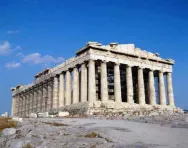
Who were the Ancient Greeks?
Greece is a country in Europe, but people have been living in that area for a very long time. The people who were living there thousands of years ago are called the Ancient Greeks, and a lot of things they did help to make up our society today. They even invented the Olympics!
The Greek Empire eventually became part of the Roman Empire, but their society had a huge impact on things we do today. We have learned a lot from Ancient Greek philosophy, language, theatre, medicine, government and more.
Top 10 facts
- The Ancient Greek Empire once included some of the countries we know today, such as Turkey and Syria.
- Some of our alphabet came from the one that the Ancient Greeks used.
- Greece was divided into city-states that each had their own laws and way of life, but all spoke the same language. Two of the best-known city states are Athens and Sparta.
- In Athens, Greek styles of art, architecture, philosophy and theatre were developed.
- Athens had a democratic government – this means that the people who lived there made decisions by voting, like we do in Britain.
- In Sparta, life was very different; all that was important was being able to defend Sparta in battle.
- The first Olympic games were held in 776 in the city-state Olympia.
- The Greeks used different kinds of columns in the stone buildings they made – Doric, Ionic and Corinthian.
- Religion was very important in Ancient Greece. The Greeky believed there were different gods and goddesses that were in charge of different parts of their lives, such as a god of the sea and a goddess of wisdom. Temples were built in their honour.
- Greece eventually became a part of the Roman Empire. The Romans conquered Athens in 146 BC.
Ancient Greece Timeline
- 1600-1150 BCThe Mycenaean Age
- 1200-1000 BCThe Greek Dark Ages, when there wasn’t really any building, learning, creating, or even governing happening in Greece
- 776 BCThe first Olympic games were held in Olympia
- 750 BCThe Greek alphabet was invented, and city-states began to be established
- 700 BCThe poet Homer wrote the epic poems, The Iliad and The Odyssey

- 508 BCDemocracy was invented by the Greeks – it began in Athens
- 490 BCThe Battle of Marathon took place, and the Greeks defeated the Persians
- 480-323 BCThe Classical Period
- 480 BCThe Greeks defeated the Persians again at the Battle of Salamis
- 472 BCPeople started going to the theatre in Athens
- 432 BCThe Pantheon was completed in Athens
- 431-404 BCThe Peloponnesian War took place between Sparta and Athens
- 356-323 BCAlexander the Great lived during this time

- 323-146 BCThe Hellenistic period
- 146 BCRome conquered Athens
- 31 BCThe Romans took control of the Ptolemaic Kingdom in the Battle of Actuim, which Alexander the Great had set up in 322 BC – the capital was Alexandria in Egypt; it marked the end of what had been a large Greek society, and it also marked the beginning of the Roman Empire
- 395 ADThe last Ancient Greek Olympic games were held


Boost Your Child's Learning Today!
- Start your child on a tailored learning programme
- Get weekly English & maths resources sent direct to your inbox
- Keep your child's learning on track
Did you know?
- Our alphabet was developed using some of the alphabet that the Ancient Greeks used. In fact, the first two letters in the Greek alphabet were ‘alpha’ and ‘beta’, which is where we get the word ‘alphabet’ from!
- Ancient Greece was made up of city-states – these were cities that had made their own laws. The Greek word for city-state is ‘polis’. We get the word ‘policeman’ from ‘polis’ – it means ‘man of the city’.
- The first Olympic games were held in 776 BC, and then every four years after that in honour of the god Zeus. Some of the events are the same as you’ll see in the modern Olympic Games, such as throwing the javelin and wrestling, but some were different – like chariot racing. Winners would get a crown of olive branches instead of a gold medal.
- Each city-state held a games event – the one called the Olympics was held in the city-state of Olympia.
- The Greeks had many different kinds of pots that they used for different things:
- carrying water in from a fountain in town
- keeping perfume in
- storing make-up
- keeping and cooling wine
- drinking
- cooking
- storing food
- The Greeks liked painting pictures on their pots, and sometimes they’d make pictures of what the pot would be used for. For instance, on little pots that children would use, there might be pictures of toys.
- Greek homes had many different rooms, all built around a courtyard in the middle. Men and women kept to different parts of the house – men had their own dining room where they’d invite their friends, and women had a room in the back of the house where they’d work on spinning and weaving or meet their own friends.
- Many Greeks wore chitons, which were loose tunics that were draped and pinned around shoulders. Sometimes they had belts around them too. Women’s tunics were longer than the ones that men wore.
- Some of the words we say in English have parts of Greek words in them, such as television, hygiene, atmosphere and character.
- The Ancient Greeks were the first to have theatres, where people would put on plays. They could be funny (comedies) or sad (tragedies).
- If you wanted to find out everything that was happening in your city-state in Ancient Greece, the place to go was the agora. This was the marketplace, where people sold things, so everyone went there to buy food or meet friends.
Can you find the following in the gallery below?
- The Parthenon
- An illustration of what the Parthenon might have looked like when it was built
- The Acropolis today
- A map of city states in Greece
- The uniform Greek soldiers would have worn
- A Greek chiton, and how to wear it
- Jewellery and hair accessories from Ancient Greece
- A Greek lyre
- Double aulos
- Greek hairstyles
- The theatre at Delphi
- A Greek temple
- The theatre at Larissa
- An ancient stadium
- A greek amphora
- Three types of Greek pillars: Doric, Ionic, and Corinthian
Gallery
About
The Ancient Greek Empire was very large, and included the modern European countries of Turkey and Bulgaria. Alexander the Great led many battles that extended the boundaries all the way through Iran, to around the border of India.
Some of the most well-known city-states are:
- Athens – Athens is the most famous city-state, and it is the capital of Greece today. In ancient times, Athens was the capital of culture – great thinkers, mathematicians, scientists and actors lived there. They were also a democracy, meaning the citizens decided among themselves how to govern the city-state. The final decision would be whatever the majority of people wanted. Athens also started using juries made up of Athenian citizens to try people who were suspected of committing crimes – the juries decided if someone were guilty or not. We also use juries today in Britain.
- Sparta – Sparta was governed through an oligarchy, which meant that a small group of people were in charge. These people were in charge of the military, and being physically fit and a good soldier was the most important thing for Spartan men. Women in Sparta were also taught how to fight and keep fit, and they wanted to have sons who would grow to be good soldiers. Boys were taken from their families when they were just seven years old and trained for a life in the military. Because of this, Spartan warriors were the best in Greece, but it was not a city of culture like Athens or Corinth.
- Corinth – Corinth was ruled by a king, so their government was a monarchy. It was located by the sea and had a good harbour, so it prospered through trade. They also had very good artists, and all boys were taught maths, science, music and literature.
The Greeks used a row of tall columns in their buildings that helped support the structure. There are three main types of columns that were used, each with a distinctive style – Doric (which was pretty plain), Ionic (which had curled ‘flutes’ at the very top) and Corinthian (which was the most decorative, with flowers and leaves at the top)
Ancient Greeks believed that everything should have balance, order and harmony – you can see this in Greek art and architecture.
Slaves were very common in Greek society, and only very poor families wouldn’t have had slaves. Slaves may have once lived in a region that was conquered by Greece, such as Persia. Sometimes unwanted babies would be left in a public place for someone to take and raise as a slave.
Education was important to the Greeks, and children were taught a variety of things. Everyone learned how to play a musical instrument, such as the lyre (a kind of small harp) or the double aulos (a pair of pipes with holes like a recorder). Boys learned how to be good athletes, but in Sparta girls exercised as well – everyone had to be fit and ready to defend Sparta.
Names to know:
Alexander the Great (356-332 BC) – Alexander the Great was the king of one of the Greek states (Macedon) and led Greek armies to many victories – in fact, he was never beaten! He extended the Greek empire as far east as India. Alexander died when he was only 32 years old.
Archimedes (c.287-212 BC) – Archimedes was a famous Greek mathematician and philosopher. He discovered a way of measuring the volume of an object by putting it in water, and seeing how much the water rose – like it does when you get in the bathtub. Archimedes was actually in the bathtub when he figured this out, and then he jumped out and shouted, ‘Eureka!’, which means ‘I found it!’
Aristotle (384-322 BC) – Aristotle was a Greek philosopher who taught Alexander the Great. Plato was Aristotle’s teacher.
Euripides (c.480-406 BC) – Euripides wrote many plays, mostly tragedies (sad plays).
Herodotus (c.484-425 BC) – Herodotus was a famous Greek historian, and his writings have really helped us understand what happened in ancient times. He was also careful about how he gathered facts – he tried to make sure they were true before writing them down. His books are called The Histories.
Hippocrates (c.460-370 BC) – Hippocrates was a famous doctor in ancient Greece, and he is called ‘the father of Western medicine’. People who become doctors today take the Hippocratic oath, promising to be good at their job and to do what’s best for their patients.
Pericles (c.495-429 BC) – Pericles led Athens during its Golden Age. Athens prospered in many ways, including winning battles and expanding its culture. Pericles thought education and art were very important.
Plato (c.424-347 BC) – Plato was a Greek philosopher who taught Aristotle. Socrates was Plato’s teacher. Plato founded the Academy in Athens, which was like a university where people could learn more than they did in school.
Pythagoras (c.569-475 BC) – Pythagoras was a Greek mathematician and philosopher. One of the things he studied was triangles, and he came up with the Pythagorean theorem which has to do with right-angle triangles.
Socrates (c.469-399 BC) – Socrates was a Greek philosopher who taught Plato. His ideas helped to develop the scientific method we use today – Socrates would always start off with a hypothesis about something, and tested that to see if it was correct.
Related Videos
Just for fun...
- Play BBC Bitesize's interactive game Ancient Greeks: The Argo Odyssey, a KS2 history game about life in Ancient Greece
- Paint your own Greek pot online
- Join a young girl called Delphi on a virtual tour of Ancient Athens, to explore its famous sites and stories
- Colour in some Ancient Greeks
- Travel back in time to the ancient city of Olympia, Greece, with Guardians of History, “The Olympia Obstacles”, an interactive voice-activated audio game from Encyclopaedia Britannica
- Craft activities inspired by Ancient Greece
- How much do you know about Ancient Greece? Take a quiz to find out!
- Take a quiz about Ancient Greece architecture
- Complete some online jigsaw puzzles of objects from the Ashmolean Museum's Ancient Greece collection
Children's books about Ancient Greece
Find out more about Ancient Greece:
- Watch the BBC Bitesize animated introduction to the Ancient Greeks, as well as lots more clips and videos about life in Ancient Greece
- A children's introduction to Ancient Greece from DKfindout!
- Look through the Children's University of Manchester Ancient Greece resources
- Animated maps illustrating the history of Ancient Greece
- Read some historical fiction for kids set in Ancient Greece
- How were Athens and Sparta different?
- Some British schools teach children Ancient Greek or Latin! Does yours?
- Download British Museum information packs about competition in Ancient Greece, Greek pots and the Parthenon
- Read about the Greek city-states
- The justice system in Athens
- Find out about the Olympics in Ancient Greece
- 10 great achievements of Ancient Greek culture
- 'visit' the Olympic Games
See for yourself
- See a collection of Greek artefacts, including vases, at the British Museum in London
- See an Ancient Greek child's doll
- Look at a silver tetradrachm coin from fifth-century BC Athens
- Take a virtual tour around Ancient Acropolis in Athens
- Look at the columns on stone buildings you pass by during the day. Can you tell what kind of columns they are?
